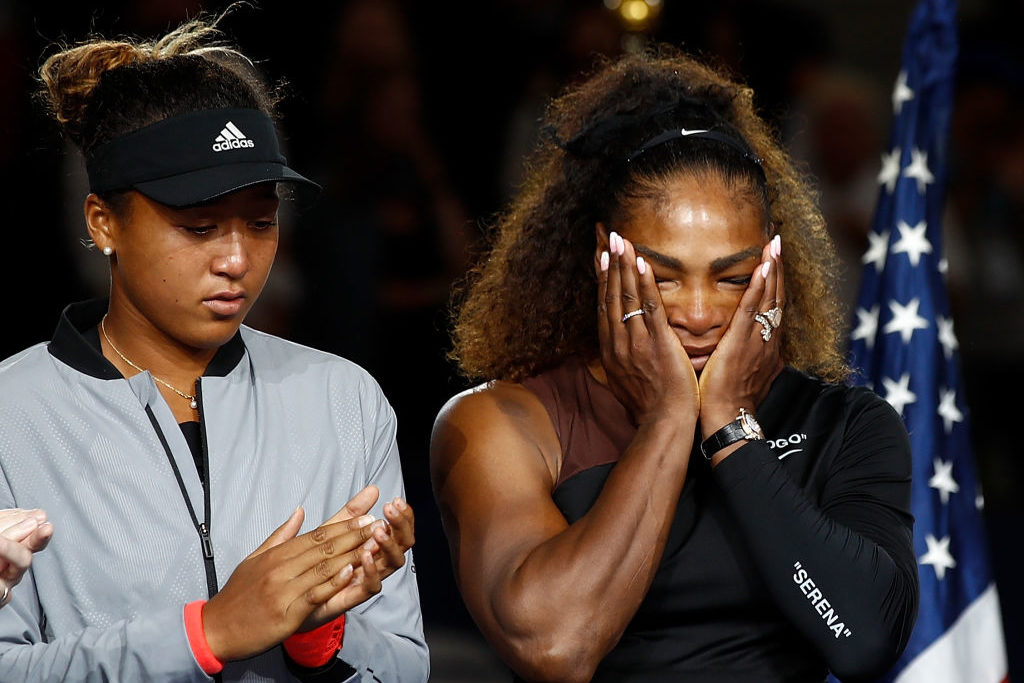Serena Williams’s epic tantrum in Saturday’s US Open final wasn’t a noble stand against racism or sexism. It wasn’t about her being black, or a woman, or a mother — although of course it very quickly became about that, as tweeters and sports hacks climbed over each other to defend the Queen of Women’s Tennis because she is a famous mega brand and her brand is about being black, a woman, and a mother.
But in our hearts we all know what really happened. Williams behaved like a bad loser then pretended to be a victim of societal injustice to justify her bratty performance. It was a pathetic and depressing spectacle. The most depressing and pathetic part was that the New York crowd — so keen to see their heroine win — indulged and encouraged her self-pitying, whining, angry display. The fans cheered her on as she berated the umpire Carlos Ramos. His sin? Having the temerity to try to do his job.
Ramos issued Williams with a code violation — perhaps harshly — for being coached during the match. Williams felt aggrieved, lost her cool and couldn’t get it back. She smashed a racquet. She screamed repeatedly at Ramos about how she never cheats, how she has a daughter (so?) and eventually told him he owed her an apology and that he was a ‘thief’. For this she was punished, then she lost, and the final as a sporting contest was ruined. For this she is being called a legend.
Serena Williams can lose without behaving like a diva brat, but sometimes she can’t, and when she loses her temper she is a fairly awful human being. Remember when she threatened to shove a tennis ball down a lineswoman’s ‘fucking throat’. How’s that for equality?
She tried to have it both ways too — bigging up her opponent, saying her row shouldn’t distract from Naomi Osaka’s achievement. Her admirers said that showed amazing grace. But it didn’t. Amazing grace would have been not to turn the whole match into a spectacle of her self-importance.
By the time the press conference came up Serena was positively intoxicated with her own sense of righteousness. ‘I’m here fighting for women’s rights and equality,’ she said. Er, no you are not, Serena. You are playing tennis and making a fool of yourself.
On Sunday the slightly ponderous sports writer Jonathan Liew has written a strangely agonised column about feeling ‘plurally’ about Williams’s big sulk. He goes through examples from Williams’s life when she has felt victimised by racism and says that any belief that rules should obeyed should take that history of victimhood into account. Liew says:
‘The problem comes when we expect great athletes to remain within boundaries they have spent their lives breaching. The lie is that you can treat Serena as if she were anybody else, when all the available evidence suggests otherwise. The hypocrisy is in demanding that humans abide by values they had no part in defining and often work actively against them. The incongruity arises when you expect a force of nature to behave like a man-made object. After all, the same river that irrigates our fields also floods our houses.’
What utter twaddle. Serena Williams isn’t a force of nature. She’s a great tennis player. Tennis is a sport that has rules. She broke them, was punished, lost, and made herself less great.
This article was originally published on The Spectator’s UK website.


















